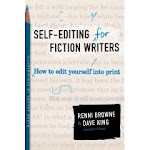A few weeks ago, Sandi asked me, “How do you manage to write so many books? How fast do you usually write them?” She suggested I blog about the process.
For about ten years, I managed to write one Heartsong-length book (45-50,000 words) in a year. If I wrote a longer book, it took me longer to write it. My primary motivator (since I wasn’t selling anything yet, understand) was to have a new chapter to bring to my critique group that met twice a month.
When I sold my first mystery, Gunfight at Grace Gulch, on the basis of a synopsis and three chapters, I had to learn how to write by the editor’s deadline. For the first time, I had to make goals work (see my January 3rd blog on Goals.) I wrote four novels and two novellas (as well as several nonfiction writing assignments) in a two year period before I made the jump to writing full time. Now I have more time to write. . .but praise God, I also have more I need to write, so the process hasn’t changed much.
I already have a detailed (chapter-by-chapter) synopsis before I begin the writing process detailed below.
I write in three drafts. My rough draft is just that: as the words trip from my fingers, no rewriting at all, full of inconsistences, research points, and notes to myself. I turn off the internal editor and simply plow through. That comes in the second draft, when I do major revisions. I research any questions, polish my writing, make sure the characters keep the same names and hair color all the way through, before sending out chapters to my critique partners. After I receive their comments, I do a final run through. Of course, before I send it in I do a final spell check.
Theoretically, each draft takes less time than the one before. In creating goals, I give a value of “1” to first draft, “1.5” to the second draft, and “2” to the final draft. That is, I hope to double my daily word count between the first draft and the final draft. Since I generally lose about 10% of my manuscript during the revision phase, I plan to write my first draft 10% longer than the final manuscript needs to be. (This isn’t true of everyone. You’ll know your own style.)
With all of that in mind, what does it look like with a real book? Let’s look at my next project, my third Vermont book, Love’s Raid, due to the editor on August 1st. I plan to finish the final edits by July 24, to allow for unexpected delays. Since writing full time, I plan on daily goals of 3,000/4,500/6,000 words five days a week (with a smaller amount on Saturdays and none on Sundays). I also let the manuscript sit for about a week between each phase. If I stick to that schedule, I can begin writing Love’s Raid on June 4th and finish on July 24th. I will try to start around June 1st, “just in case:”
June 1st-21st: Rough draft
June 28th-July 3rd: Major revisions
July 12th-24th: Final edits
This schedule allows me to focus on a different manuscript requested (but not contracted) between now and June 1st.
As I’ve focused more on writing, my writing has improved in the first draft. My revisions no longer take as longer. I’m writing faster and cleaner. I have no magic pills to offer to speed the process. Know your own limits, plan accordingly, and you will find yourself doing more with less as you grow.
What does your writing process look like? Have you finished a manuscript? Tell me more.












Thanks for the glimpse into a full-time writer's life! I like how you allow down-time between each phase and build in time for the unexpected. I'm going to do some calculating and set similar deadlines for myself. I'm not under contract but it'll be great practice for when I am.
ReplyDeleteI've learned that's necessary. At that same time the number of book contracts increased, my daughter died, I had major surgery, and then my mother died. Oh, and a new grandbaby and I moved out of state. But I have yet to miss a deadline.
ReplyDeleteDarlene, you are so encouraging. I like your schedule. That's something to think about for me. I write in the mornings, mostly, but if I get behind, I write at night. I need to set my goals better. It all makes good sense.
ReplyDeleteI seek to encourage ... so thanks, Kathy. It can be done!
ReplyDeleteDarlene, your organization inspires me! I have zillions of spiral notebooks of first drafts with some revisions. Now I have a nightmare on my hands. If I ever get published people might think I'm a wonder at the rate I crank books out, but it will have been from years and years of writing!!! I should be so blessed.
ReplyDeleteI'm now writing on my computer and as I work on the fd I do some revisions and backplotting. As I write forward I often jump ahead and think of future or previous scenes and just get 'em down when the idea strikes. As haphazard as that sounds I am benefitting from the ease of revising and editing in my word program.
Although I am a sotp writer, I keep a running outline to help me keep track of my story and an overview of the big picture. This also helps me develop my synopsis later.
Finished a manuscript, polished and all? No. But that's where I'm at in my writing journey now and my primary goal.
If I think of something to go back and add, I'll put a note on my rd that says "go back and show this earlier" That's why my rough draft is so rough!
ReplyDeleteGet that ms polished, girlfriend (Carla is one of my critique partners, y'all)
Oh, but in saying "polished" manuscript? Don't use that as an excuse to work on the same book forever. A writing friend who is now with the Lord said a writer only finished with edits when the editor grabbed it out of our hands. We can always find something to do better, but after a time, let it be and move on.
ReplyDeleteGood advice about the polishing. We can be such perfectionists! I think part of it, too, is being creative - there are so many "good" ideas and many "good" ways of doing something. We can say, oh, maybe I should write it this way or that way or even this way when they may all be good. Sometimes we need to just pick one and stick with it and not second guess ourselves so much.
ReplyDeleteI'm trying, Darlene! And I'm so glad to have you to hold me accountable! I think all writers should find critique and accountability partners and I'm so glad to have you.